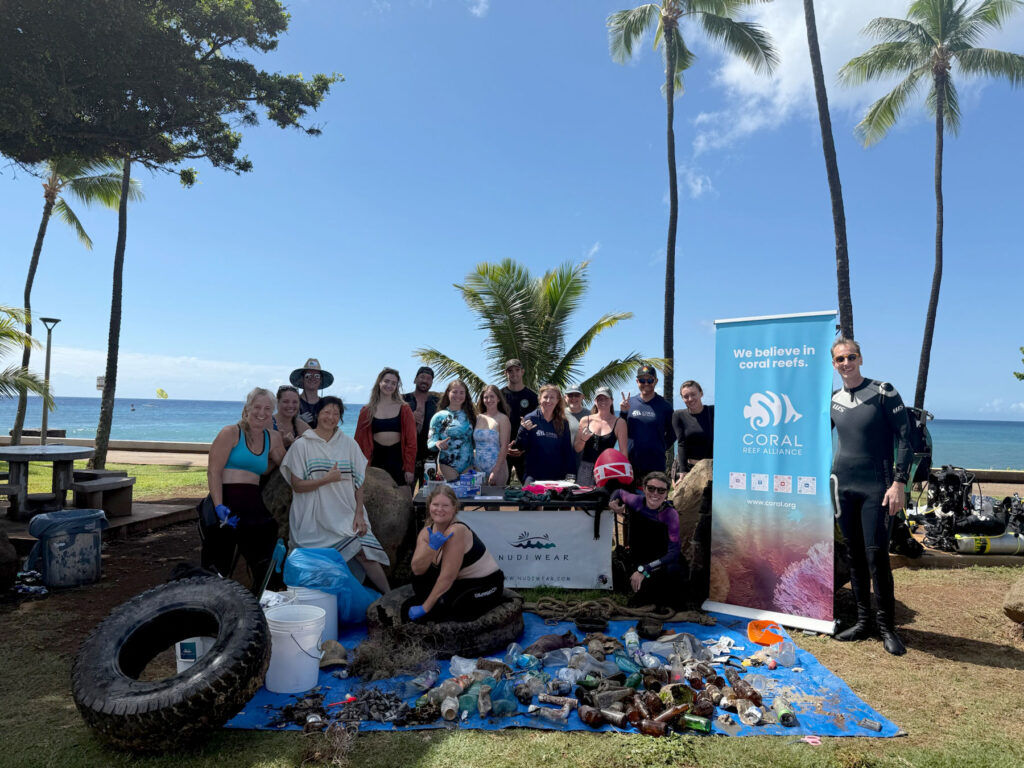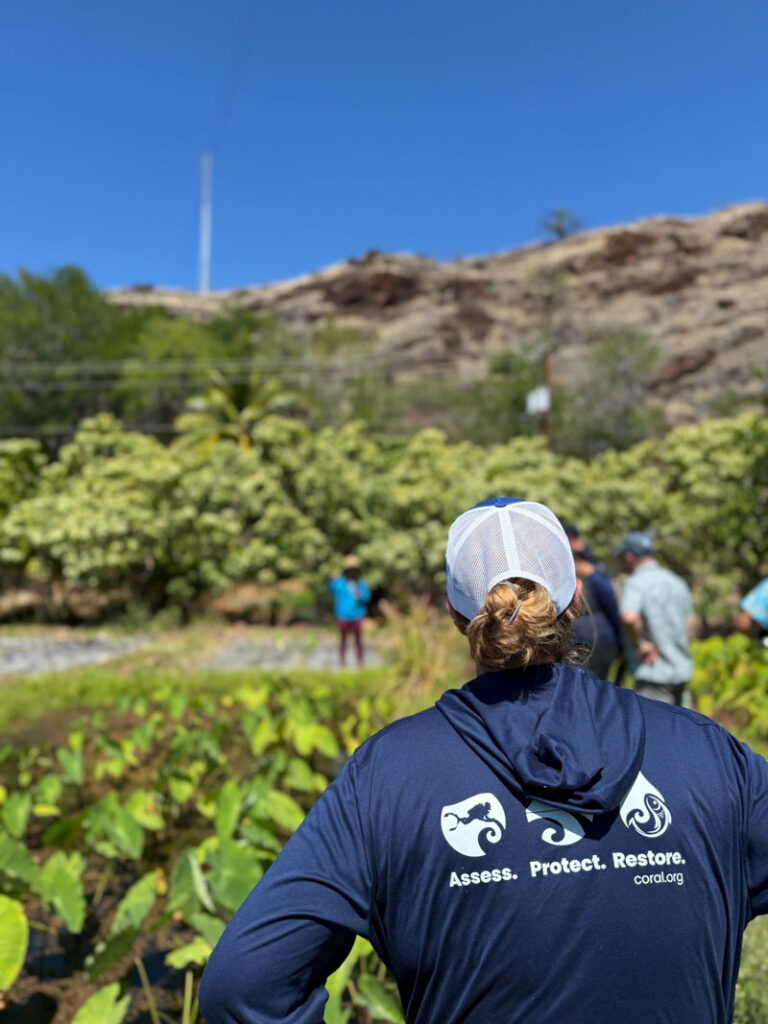The Coral Reef Alliance is entering one of the most pivotal chapters in its 30-year history.
With a major expansion into the Eastern Caribbean and an ambitious strategic plan already in motion, Executive Director Heather Starck is steering the organization toward deeper regional impact and stronger global collaboration, all while staying true to CORAL’s core values.
In this Q&A, Heather shares how the organization is scaling its work, what gives her hope in the face of climate pressures, and why community-led solutions remain the heart of lasting reef conservation.
Vision and Growth
Q – CORAL just announced its expansion into the Eastern Caribbean. What does this milestone mean for the organization and the global coral reef conservation movement?
A – We’re more prepared than ever to take 30 years of experience and proven solutions to coral reef communities that are dedicated to reducing threats and saving these ecosystems. It means CORAL and our partners are committing to an outsized impact and a model that’s based on learning from each other—breaking down silos, barriers, and addressing systemic challenges in coral conservation. We know we need to focus on entire regions so we have large, diverse, connected coral reefs. This is the key to adaptation.
Miss the Announcement? Watch the video and read it here >
Q – You’re leading CORAL through a major growth phase. What excites you the most about where we are heading as an organization right now?
A – I’m truly excited to welcome more people into our alliance. This means more partners and staff with diverse perspectives and in-depth knowledge from communities directly impacted by this crisis. And what feels especially meaningful is that, even as we grow, our values and approach haven’t changed. It feels honest and authentic. I can’t wait to look back 5 years from now and see how many protected areas are thriving, how much wastewater we keep out of the ocean, and how regional ecosystems are stronger because of this growth.
Q – How do you balance urgency and optimism when leading an environmental organization in the middle of a climate crisis?
A – It really comes down to focusing on what works and what science is telling us. The threats are so real and immediate, but so are the solutions. For me, the optimism also comes from witnessing the collaborative power of local leadership, Indigenous knowledge, and global collaboration. We all have choices to make, and communities will either mitigate, adapt, or suffer. I hope more communities, governments, and people make the right choices.
Strategy in Action
Q – CORAL’s five-year Strategic Plan is ambitious. How are you turning that vision into tangible, measurable impact on the ground?
A – We are pairing big goals with disciplined, place-based, and science-informed execution. There is a lot of work behind the scenes to ensure we have the right operational model, partners, and decision-makers at the table. My role is to give my team the resources they need to carry out this plan, and it’s a plan we all believe in—staff, board, council, partners, and donors.
Q – What makes CORAL’s approach different from traditional conservation models?
A – We don’t rely on a top-down model. Our work starts with local communities, builds regional systems that support them, and connects both to global science and policy. That multi-level, community-driven approach is what makes long-term reef resilience possible. It’s what sets us apart. We support the local, regional, and global levels, which are all equally critical.

People and Partnerships
Q – CORAL’s name emphasizes “alliance.” What does effective partnership look like across regions as different as Hawai’i, Honduras, and now the Eastern Caribbean?
A – We take partnership seriously at CORAL, and we often play the behind-the-scenes supporting role. We want our partners to shine, as they will be the long-term stewards of any given reef or protected area. Effective partnerships include shared goals, shared resources, and a lot of learning, listening, and support on CORAL’s part.
Q – How do local communities benefit from CORAL’s hub model, and why is this approach central to your strategy moving forward?
A – The delegation of a hub means we are building resources to support a region. We want to bring financial resources, technical expertise, and work alongside partners to implement successful conservation projects that result in more effectively protected areas and address land-based pollution. Our hub model allows us to align science, funding, and capacity strengthening when we don’t have staff embedded across many countries in a region.
Leadership and Legacy

Q – You’ve worked in conservation for decades. What’s been the most rewarding part of leading CORAL during this period of transformation?
A – The most rewarding part of leading CORAL is working with a team of staff, board, and partners that are extremely talented, knowledgeable, and dedicated to creating lasting change in communities across the globe.
Pull quote: Conservation is about people. Together, we are the ones who can move solutions forward in communities.
Leading an alliance of changemakers is by far the most fulfilling part of transformational change. Standing beside communities as they bring back historical cultural practices that benefit reefs and people is truly an honor.

Q – Looking ahead, what’s your hope for coral reefs and their surrounding communities over the next decade?
A – My hope for coral reefs and the communities that are inextricably connected is that we work together towards a future where the land, the sea, and all of the inhabitants can live in balance. A future where we better support the ecosystems that support life. Thriving ocean ecosystems that are adapting to climate change and economies that support resilience.
Q – For people reading this who care about the ocean, what’s the most meaningful way to get involved right now?
A – You will have the most impact when you work at the intersection of your passion and your skillset. If you are passionate about the ocean AND you have skills in social media, use that to inform, get others involved, and tell important stories. If you have business skills, volunteer your time helping small nonprofits working on ocean conservation to run their business operations smoothly. Everyone has a voice and the ability to get involved in meaningful ways.



